Last updated: December 16, 2023
Article
Roger Williams, Religious Freedom, and a Jewish Legacy
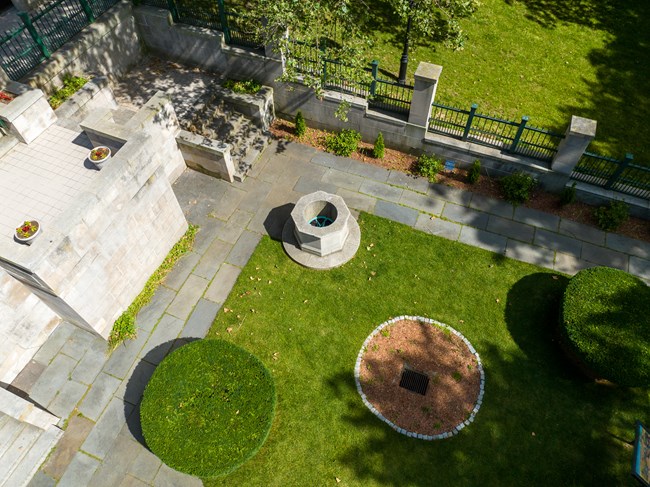
Photo Credit: David Lawlor
"J. Jerome Hahn, late Justice of the Supreme Court of Rhode Island, used to speak with great joy and delight of the spot where we are now assembled. He used to say that the spring, where in 1636 Roger Williams landed, was and is one of the truly hallowed spots on this continent.
All of us here share, I believe, this conviction. Jerome Hahn used to take pride in this spot because it was he who bought the land from the descendants of Jacob Seagraves, its last private owners. He bought the land for the purpose of donating it together with the spring upon it, to the people of Providence. The waters of this spring were once reserved in perpetuity for the free use of the citizens of this community. But for many years these waters together with the spring from which they came have become inaccessible. And so in 1928, Jerome Hahn donated the land as a public park in memory of his father Isaac Hahn, the first citizen of Jewish faith to be elected to office by the voters of Providence.”
-Rabbi William G Braude, 9/14/1954 in a speech at the Hahn Memorial
In 1928, Judge J. Jerome Hahn purchased this small plot of land and the building that was over it because of its historical significance. He wrote, “I desire to memorialize the name of my late father, Isaac Hahn.” The elder Hahn was the first person of the Jewish faith to be elected to public office in Rhode Island.
Jerome donated the land to the city of Providence who constructed this formal garden using the designs of Norman Isham, an architectural historian and archeologist who excavated the original Providence homesite of Roger Williams. The well that you see here today was built on the spot that was once a flowing spring. In the words of one historian, it was in this place that a “spring gushed forth from the hill-side in a copious stream, issuing from a shallow pool, and from boiling quicksands, and flowed down to the adjacent river.” Records show that by the time the well was constructed, water had stopped flowing due to overdevelopment of this hillside.
The site became known as Roger Williams Spring Park. Today, this area is nested within the larger Roger Williams National Memorial. Now called the Hahn Memorial, it serves as a tribute to Jerome’s father Isaac.
The Hahn Memorial’s location is significant because of Roger Williams’s contributions to the philosophy of religious freedom. Williams (1603-1683) was an English Puritan minister who arrived in Massachusetts Bay in 1631. He was a brilliant theologian, philosopher, and lawyer whose ideas challenged the English Church and King. By 1636, he was also questioning the authorities in New England. For his “new and dangerous opinions” Williams was exiled from the English colonies by the magistrates in Salem.
Williams and his followers decided to establish a new form of government, one that does not create rules for religion but instead, “ordinarily met once a fort night” where the town made, “orders or agreements . . . by the major consent of the present inhabitants. . .for the public good. . . only in civil things.” Rather than meeting in a church or municipal building, they agreed to meet at the spring. This is the site where the first secular, democratic government in history met to conduct business. These humble beginnings in the 1630s led to a royal charter, signed by King Charles II in 1663, referring to the Colony of Rhode Island as a “livelie experiment.” This new form of government had clear yet limited powers. More than a century later, this system of government authorized by the people served as the foundation for the United States Constitution.
In 1954, during the celebration of the 300th anniversary of the first Jewish immigrants to North America, a group of Jewish leaders recognized the continued relevance of Williams’s charter. The American Jewish Tercentenary Committee of Rhode Island wrote,
Mindful of our responsibilities under God and freedom, we, citizens of the Jewish faith, record our gratitude to Roger Williams for the opportunities which he, first in the world, made available to all men.
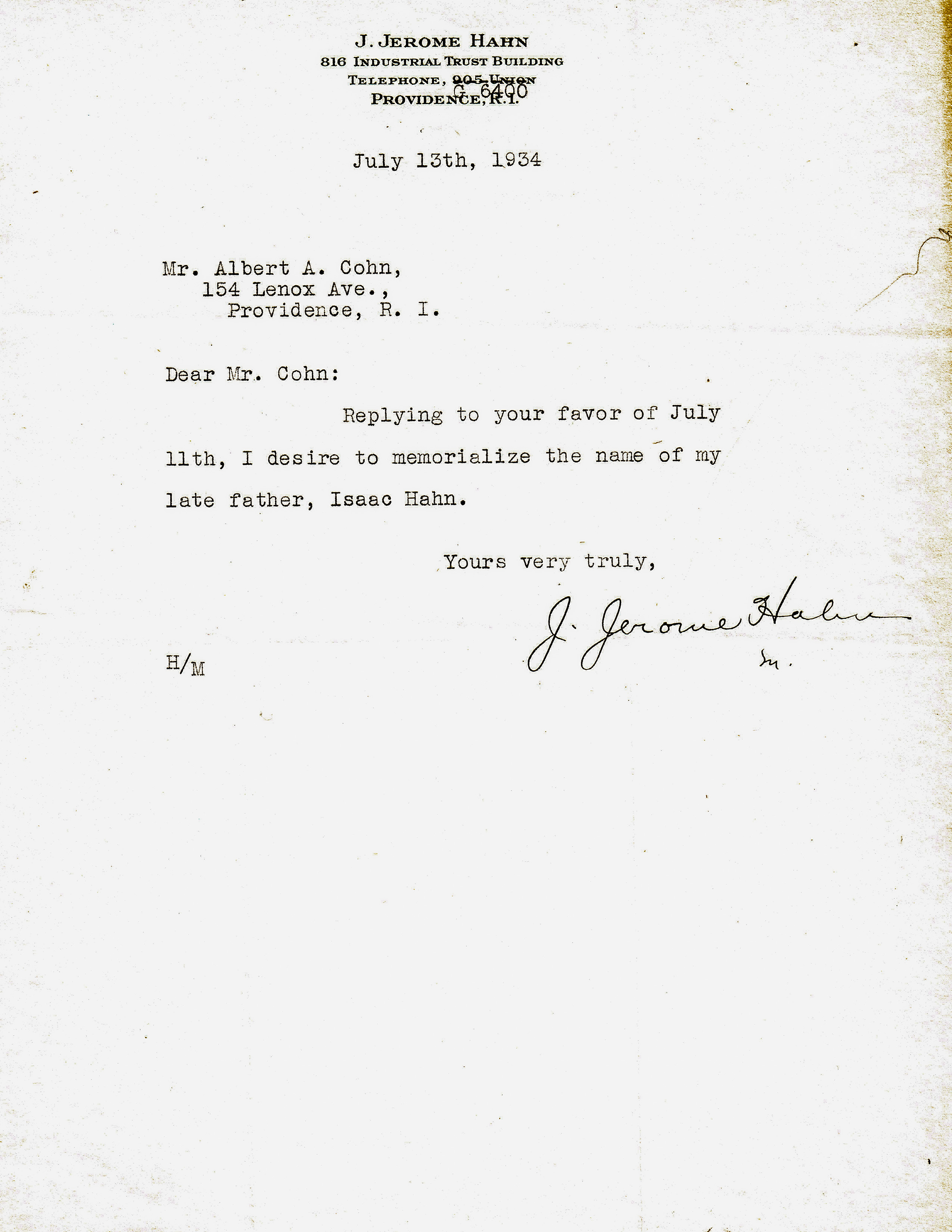
Image: Rhode Island Jewish Historical Association
A letter from J Jerome Hahn
-
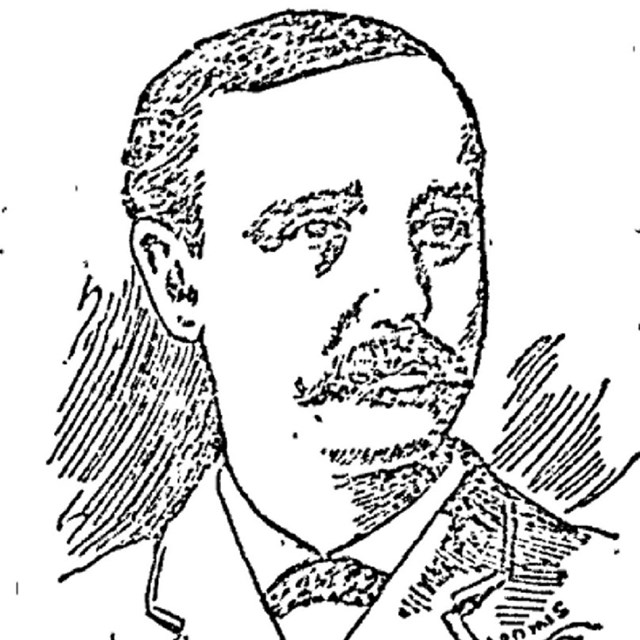 First Jewish Elected Offical in RIIsaac Hahn
First Jewish Elected Offical in RIIsaac HahnThe namesake of the Hahn Memorial
-
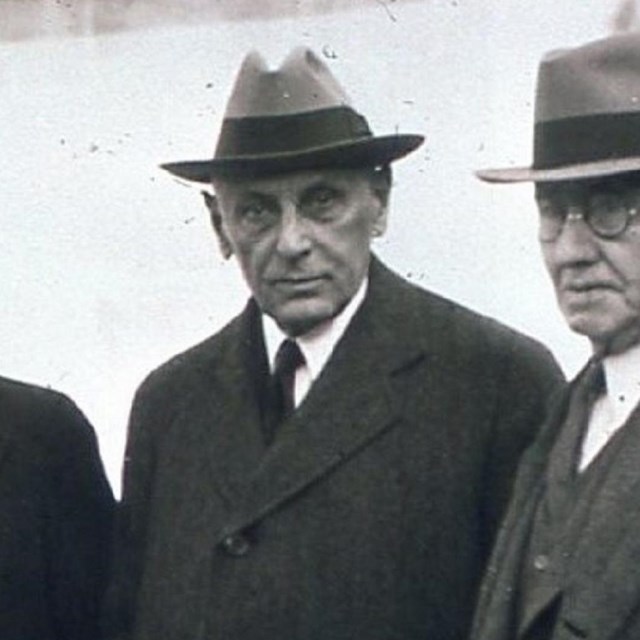 RI Supreme Court JusticeJudge Jerome Hahn
RI Supreme Court JusticeJudge Jerome HahnLearn about the man who donated the first parcel of what became a National Memorial
-
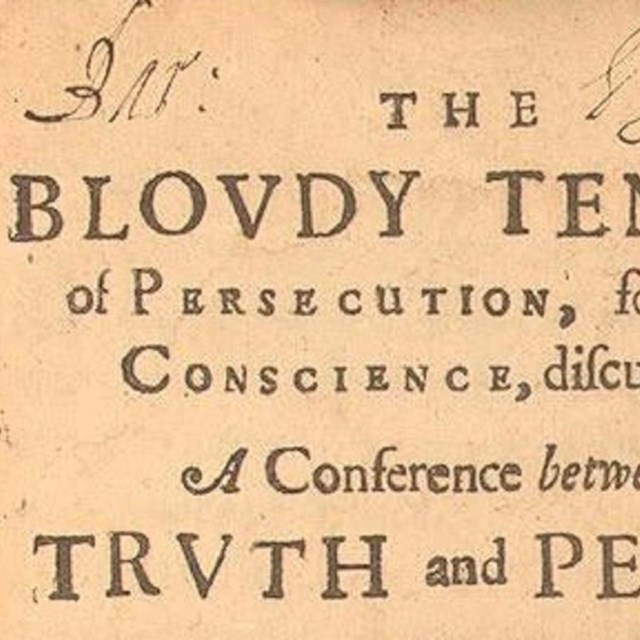 American FounderRoger Williams
American FounderRoger WilliamsLearn about Roger Williams
